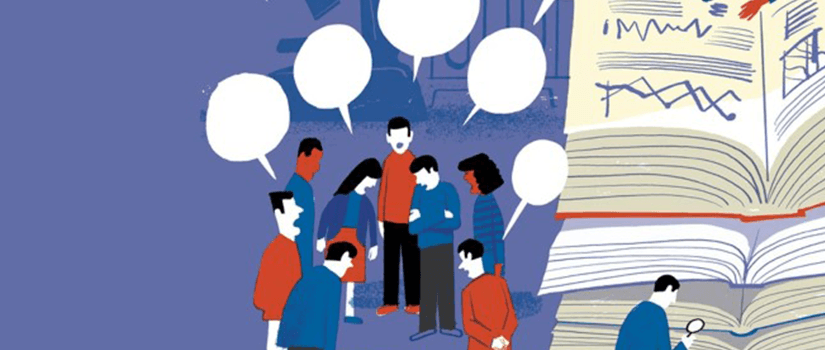Managers who discriminate may cause all of their employees to become less productive at work, according to a study by University of South Carolina sociologists.
Published in the journal Nature Human Behavior in September, the research shows that workers discriminated against may feel demoralized and put in less effort, says sociology professor Brent Simpson. More surprisingly, he found that those who receive unfair rewards also slack off.
“This happens because discrimination ‘decouples’ efforts from rewards,” Simpson says. “If my boss is biased against people like me, it doesn’t matter how much work I put in. Similarly, if my boss is biased in favor of people like me, it also doesn’t matter as much how much I put in. So why work hard?”
Measuring effort
Simpson and Nicholas Heiserman, a recent USC Ph.D. graduate, conducted a series of laboratory and online experiments with more than 1,000 people. Participants were told they were on a blue team competing with a red team at work in the simulation.
Some participants were told that their manager had a preference for blue-team employees, while others were told the manager preferred the red team. A third group was told that the manager had no preference. The researchers then measured effort and motivation based on participant feedback and the results of various activities.
They found that everyone with a discriminatory manager put in less effort than those who believed the manager had no preference. Effort dropped most among those who were discriminated against, likely due to psychological stress imposed by biased treatment, Simpson says.
This can have broad implications for workplace productivity, Simpson says.
“This means that the presence of discrimination may reduce effort of all employees, not just those who are discriminated against,” he says. “The effect on the bottom line could be substantially larger than has been previously recognized.”
Simpson added that effort was also related to how much the participants thought that effort would lead to a bonus. The less someone expected a reward for more work, the less effort they gave.
Self-fulfilling prophecy
Simpson and Heiserman also found that this effect may compound to cause more discrimination later.
In a subsequent study, they asked real-world managers to evaluate the characteristics of participants who had been in the advantaged group in the earlier simulations compared to participants who had been in the disadvantaged group.
Managers saw that one group produced more, but they did not know that the difference in output was caused by discrimination. As a result, most rated the advantaged group as being warmer and more competent than the disadvantaged group. They also said they would prefer to hire people from the more productive group.
Simpson says this creates a negative cycle: When workers face discrimination, they conclude that a workplace reward is unlikely. But that becomes a self-fulfilling prophecy as they reduce their effort, causing their managers to form or reinforce stereotypes about the workers.
Understanding these effects could motivate employees to recognize and report discrimination, Simpson says, but making managers aware of the consequences of unfairness would be more pivotal.
“I think any time managers notice differences in effort or productivity between social categories, whether that’s gender, race or something else, they should investigate whether these differences are the outcomes of discrimination,” Simpson says. “This runs against a tendency to either explicitly or implicitly attribute productivity differences to qualities of the category rather than discrimination.”
The paper by Simpson and Heiserman appeared in Nature Human Behavior on September 21. It can be read here.
Simpson and Heiserman, who recently joined the faculty of Oklahoma State University, plan to take the research to the next level by studying how the observations apply to situations when discrimination is based on real-world characteristics like race and gender.
